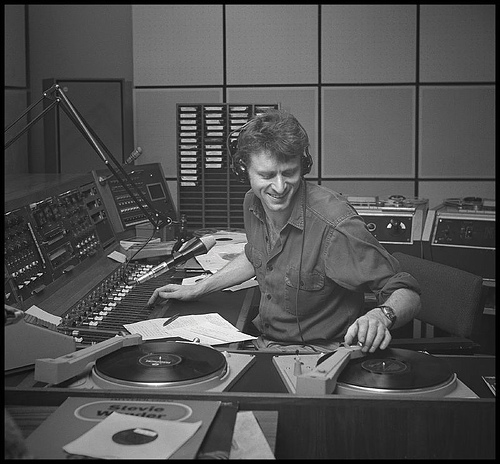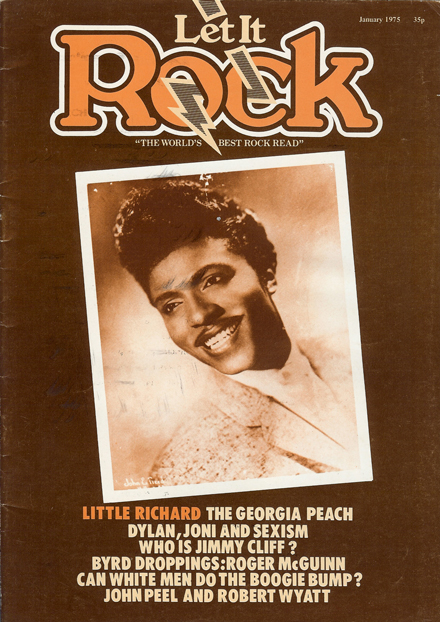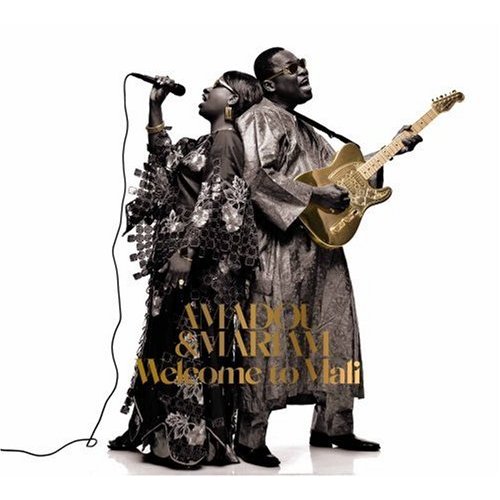
BBC: BBC World Service DJ Charlie Gillett has died after a long illness, aged 68. Known as a champion of world music, the Lancashire-born broadcaster passed away on Wednesday morning, his official website confirmed. The author and publisher had contracted a disease of the autoimmune system, and last week suffered a heart attack. Gillett is credited with discovering Dire Straits in 1976 after playing Sultans of Swing from their demo tape on his Radio London show Honky Tonk. ‘Sorely missed’ He also wrote an acclaimed history of rock’n’roll, The Sound of the City, in the 1970s. World Service director Peter Horrocks said he was an inspiration whose spirit of adventure and passion for the rich diversity of global music opened the ears of the world. “His broadcasts brought together music and radio fans from far flung corners of the globe,” he said. “His postbag was one of the biggest, most affectionate and  diverse in Bush House, which confirmed his special place in listener’s lives. He was a very special broadcaster and he will be sorely missed.” MORE
diverse in Bush House, which confirmed his special place in listener’s lives. He was a very special broadcaster and he will be sorely missed.” MORE
VANCOUVER SUN: He also wrote what is widely acclaimed as the first serious history of pop music, The Sound of the City: The Rise of Rock and Roll, The book was adapted from his Master’s thesis written at Columbia University. The volume was well-received critically and propelled Gillett to continue his journalism for several high-profile American and British magazines. It received excellent reviews in both Time magazine and The New York Times and enabled Gillett to further his music journalism career and to write a second book, Making Tracks. He wrote for a variety of music magazines including Rolling Stone and New Musical Express and contributed to The Observer. MORE
REASONS TO BE CHEERFUL: Let It Rock’s launch in 1972 coincided with “the first era of post-modernism in pop,” as the late great Ian MacDonald told me in my music press history In Their Own Write. “Music started to be conscious of itself and look back and begin to make syntheses and style references and be ironic.” Of course, the collective which founded the publication – Simon Frith, Charlie Gillett, Phil Hardy, Gary Herman, Ian Hoare and Dave Laing – were riding the zeitgeist; in fashion a stylistic revolution was being sparked by Malcolm McLaren and Vivienne Westwood’s investigations into 50s musical subcultures at their King’s Road shop of the very same name, while visual artists such as Barney were enthusiastically plundering the recent history of art and commercial design to reinvigorate the world of graphics. MORE
RELATED: “There are going to be many people who will find they have three copies of this album by the end of  this year,” says the esteemed English broadcaster and critic, Charlie Gillett. “One that they bought themselves, the other two given by people who’ll say ‘I heard this and thought this is the kind of thing you like’. And there will be people who will themselves have bought three or four copies to give to friends, saying ‘I know you’ve sworn you’ll never like an album not in English, but this is the one to win you over’.” Right now it feels like the defining album in a long and notable career — an album already gone nuclear in France and looking set to charm and capture audiences around the world. The album is ‘Dimanche à Bamako’ (‘Sunday in Bamako’) by the Malian duo of Amadou & Mariam. Produced by and featuring the celebrated Manu Chao, ‘Dimanche à Bamako’ has propelled Amadou & Mariam high into the French charts, along the way winning both a gold disc and a prestigious Les Victoires de la Musique award –- the French equivalent of the Grammys. Such phenomenal success cements the awesome reputation that Amadou & Mariam have built throughout West Africa. They have known each other for 28 years, their personal and professional lives long since intertwined. Amadou Bagayoko and Mariam Doumbia first came together in 1977. Both are blind and they met at the Institute for the Young Blind in Bamako, the capital of Mali, where Amadou and Mariam were part of the Institute’s Eclipse Orchestra. MORE
this year,” says the esteemed English broadcaster and critic, Charlie Gillett. “One that they bought themselves, the other two given by people who’ll say ‘I heard this and thought this is the kind of thing you like’. And there will be people who will themselves have bought three or four copies to give to friends, saying ‘I know you’ve sworn you’ll never like an album not in English, but this is the one to win you over’.” Right now it feels like the defining album in a long and notable career — an album already gone nuclear in France and looking set to charm and capture audiences around the world. The album is ‘Dimanche à Bamako’ (‘Sunday in Bamako’) by the Malian duo of Amadou & Mariam. Produced by and featuring the celebrated Manu Chao, ‘Dimanche à Bamako’ has propelled Amadou & Mariam high into the French charts, along the way winning both a gold disc and a prestigious Les Victoires de la Musique award –- the French equivalent of the Grammys. Such phenomenal success cements the awesome reputation that Amadou & Mariam have built throughout West Africa. They have known each other for 28 years, their personal and professional lives long since intertwined. Amadou Bagayoko and Mariam Doumbia first came together in 1977. Both are blind and they met at the Institute for the Young Blind in Bamako, the capital of Mali, where Amadou and Mariam were part of the Institute’s Eclipse Orchestra. MORE
